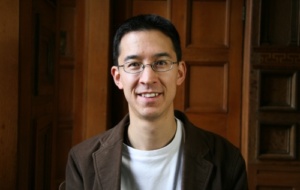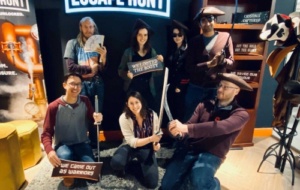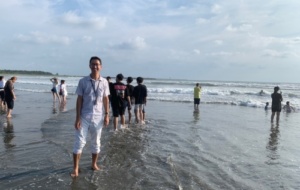Profile: Professor Nick Yeung

Professor Nick Yeung, Sir Jules Thorn Tutorial Fellow
Professor Nick Yeung is Sir Jules Thorn Tutorial Fellow in Psychology, Professor of Cognitive Neuroscience and Schools Liaison Fellow at Univ.
Why did you become an academic? Was it a natural decision?
I don’t think I ever made an actual decision to become an academic, but looking back it did happen naturally – I found something I was fascinated in, and have just kept doing it. I got interested in psychology when thinking about what to study at university, and during my degree I really loved doing my third year research project and wanted to continue those experiments in a PhD. After my PhD, I wasn’t really sure what to do, but had the opportunity to do a postdoc (research) job in the US, which seemed like a great experience even if an academic career didn’t work out.
How has your research and/or teaching changed during lockdown?
The tutorial teaching system is so flexible and robust that it works pretty well even as a glitchy Microsoft Teams meeting. But I definitely missed the fluidity of in-person teaching. I arrange my office so that students in the tutorial are facing each other as much as they are facing me, to encourage them to interact together and have an inclusive and sustained discussion, rather than it turning into a sequence of separate Q&As with me. That’s harder to do online, where I think students tend to orient more towards me as the tutor, especially if they don’t already know each other well. Last term was a real delight in terms of getting back to real, in-person teaching.

Professor Nick Yeung at a lab social
For research, some of our projects involve recording brain activity by sticking electrodes to people’s heads, so that had to stop for 18 months during the various lockdowns and as we worked on how to run experiments safely. But most of our research carried on as normal because for a few years now we’ve run experiments online, with our participants doing computerised tasks on their laptops, tablets and even phones and sending us their data. Here’s an example of one of our tasks, where the game is to decide which colour tile is more frequent in a grid, and occasionally rate how sure you are. We use this as a simple test of how people make decisions, judge their confidence, and make choices about whether to ask for more information before committing to a decision.
What’s your favourite part of being an academic?
That it’s my job to be open to new ideas.
Are there any misconceptions about your field?
Not really, among the people applying to study psychology here – they’re very well-informed about the courses they’re applying for.

Professor Nick Yeung at the seaside while at a conference in Taiwan
Do you have any advice for applicants or current students?
For applicants, the University does a good job now of collating advice and information on its main admissions webpages – e.g. here’s me and a psychology colleague giving lots of advice for interview candidates. For current students, one of the strongest features of the college system is that we work with students individually and in a sustained way, so that we get to give them advice that isn’t generic but rather is specific to them and their academic development.
Describe Univ in three words.
Surprisingly forward looking.
You can find out more about Nick here.
Published: 24 January 2022
